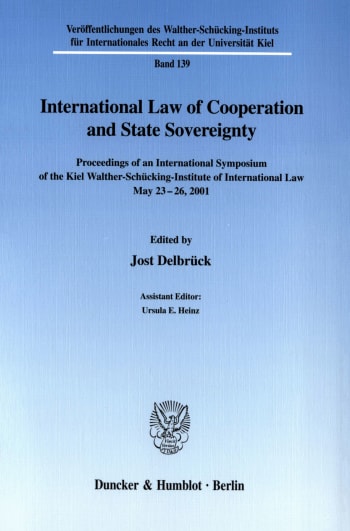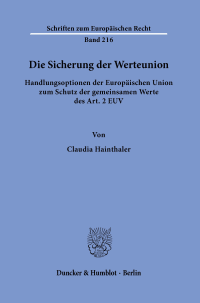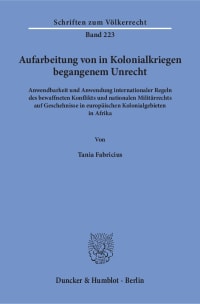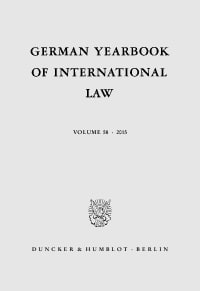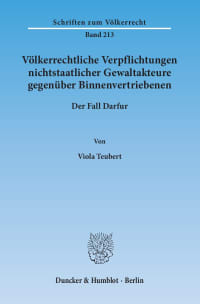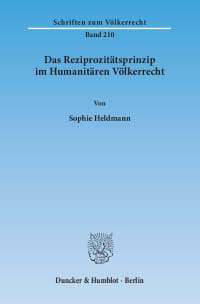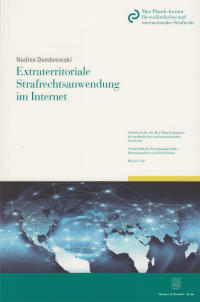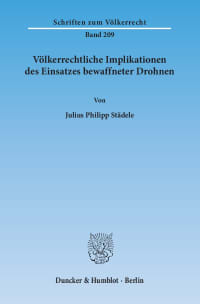Proceedings of an International Symposium of the Kiel Walther-Schücking-Institute of International Law, May 23-26, 2001
Description
It was in the early 1990s, more precisely in 1991 shortly after the end of the Cold War, that the Walther-Schücking-Institute at Kiel University - within the framework of its biennial international conferences - started a series of international symposia which, in retrospect, can be subsumed under the overall heading of »international law at the frontiers«. The aim of these thematically closely related symposia, bringing together eminent international legal scholars, was to explore the structural changes that the international system and its legal order were undergoing due to the forces of globalization and the political upheavals following the end of the ideological division of the world. The present papers and proceedings of the fifth conference of the series of symposia brings this project to an end. The authors are exploring the meaning of the concept of the international law of cooperation and the obligation to cooperate in three important areas of modern international law: the international protection of human rights (Lori Fisler Damrosch, New York) international economic and environmental law (Christian Tietje, Halle) and international dispute settlement (Anne Peters, Basel). The implications of the state obligations to cooperate for the conceptualization of sovereingty in present international law are the subject of the fourth paper (Christoph Schreuer, Wien). Although the host of information, provided by the rapporteurs, revealed the immense importance of obligations to cooperate in international conventional law as a steering tool in international relations it also became clear that a general concretization of the meaning of obligations to cooperate cannot presently be established - if ever. The concrete meaning of the obligation to cooperate has to be interpreted within the actual context in which such obligations are stipulated. It was also concluded that obligations to cooperate surely constitute major restraints on the sovereign freedom of action of states. However, they are not incompatible with the notion of state sovereignty as it is recognized under modern international law. States today are embedded in a network of institutionalized legal regimes under which sovereignty - in contrast to the pre-World War I era - cannot legally be exercised at will. Sovereignty has to be re-conceptualized in the light of the international law of cooperation and the ensuing obligations to cooperate that at are crucial for the development on an International Civil Society under the rule of law.
Overview
Inhalt: R. Hofmann / J. Delbrück, Opening Addresses - L. Fisler Damrosch, Obligations of Cooperation in the International Protection of Human Rights - C. Tietje, The Duty to Cooperate in International Economic Law and Related Areas - A. Peters, Cooperation in International Dispute Settlement - C. Schreuer, State Sovereignty and the Duty of States to Cooperate: Two Incompatible Notions? (Summary and Comments)
